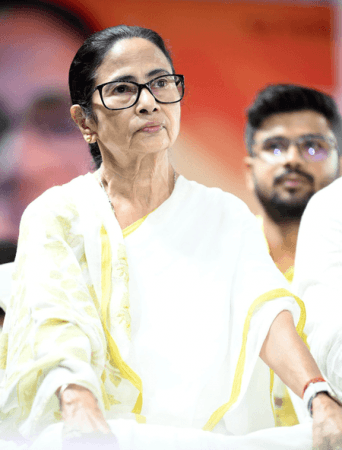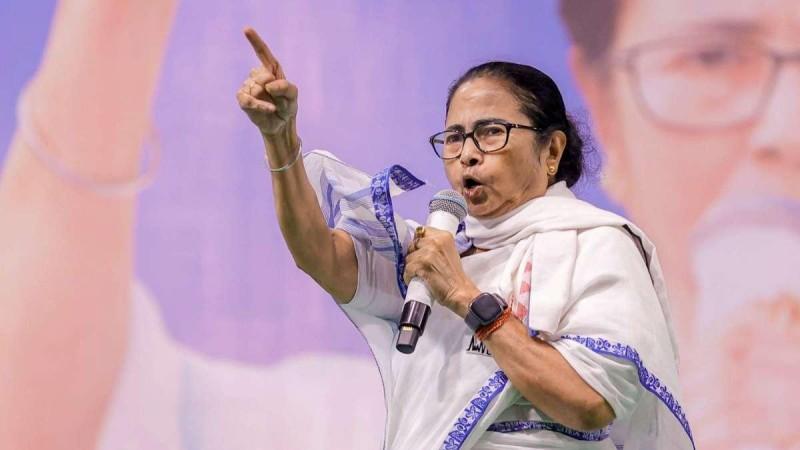
In a deeply disturbing incident that has ignited widespread outrage, a 23-year-old MBBS student from Odisha was gang-raped in Durgapur, West Bengal. The crime occurred late at night outside her private medical college, raising serious concerns about women's safety. The student, accompanied by a male friend, left the college campus for dinner when they were followed by a group of men. While her friend managed to escape, the woman was forcibly taken to a nearby forested area, where she was brutally assaulted. The attackers also stole her phone and demanded ₹3,000 for its return, threatening her life in the process. Her roommates and college staff raised the alarm after she returned to the hostel, leading to a swift police response.
The West Bengal police have arrested three individuals—Apu Bauri, Firdos Sekh, and Sekh Reajuddin—in connection with the crime, and a fourth suspect has been detained. The police have assured that the culprits will face justice, stating, "The pain of the victim is as much ours as it is Odisha's, and we shall leave no stone unturned to bring the perpetrators to justice."
This incident has drawn sharp criticism from various quarters, particularly due to Chief Minister Mamata Banerjee's remarks, which many have interpreted as victim-blaming. In her initial comments, Banerjee questioned the student's decision to be out late at night, saying, "She was studying in a private medical college. Whose responsibility is it? How did she come out at 12.30 at night?" She further suggested that private colleges should ensure the safety of their students and control the "culture at night."
In response to the criticism, Mamata Banerjee has accused the media of misreporting her comments, claiming that her words were "deliberately distorted" and taken out of context. She stated, "My address at Dum Dum Airport has been deliberately distorted. You ask me a question, and when I answer, my words are twisted and taken out of context. Do not try this nasty politics with me."
The victim's family, deeply shaken by the incident, has expressed a desire to transfer her back to Odisha, citing concerns for her safety in West Bengal. Her father, heartbroken and worried, stated, "My daughter is in pain. She can't walk right now. She is bedridden. I am concerned about her safety here. They could kill her here any moment. That's why we want to take her back to Odisha. Trust has been lost. We don't want her to stay in Bengal. She will pursue her education in Odisha." Odisha Chief Minister Mohan Charan Manjhi has reached out to the victim's family, offering support and assistance.
He has also urged the West Bengal government to take strict action against the accused, stating, "I strongly urge the West Bengal Chief Minister, Mamata Banerjee, to take exemplary action against the accused as per the law. The Odisha government will provide all possible assistance to the victim's family."

The incident has also caught the attention of national bodies, with the National Commission for Women (NCW) taking cognizance of the case. Union Minister Annpurna Devi expressed her concern, stating that action would be taken following a report from the National Women's Commission.
This case is reminiscent of other high-profile incidents of sexual violence in India, which have often led to public outcry and demands for stricter laws and better enforcement. The 2012 Delhi gang rape case, for instance, led to significant changes in India's legal framework regarding sexual violence. However, despite these changes, incidents like the one in Durgapur continue to occur, highlighting ongoing challenges in ensuring women's safety.
Ongoing Investigation and Broader Implications
The Durgapur case has become a flashpoint in West Bengal's charged political climate, with the BJP accusing the TMC of governance failure and insensitivity, while the TMC alleges a deliberate attempt to politicize a tragic incident. The political ramifications of the case are likely to continue as both sides engage in a war of words over the issue. As the investigation continues, the focus remains on ensuring justice for the victim and addressing the broader issues of women's safety and victim-blaming in society. The case serves as a stark reminder of the work that still needs to be done to create a safer environment for women in India.
The incident has also highlighted the need for better security measures in educational institutions, particularly those located in remote or less secure areas. The role of private colleges in ensuring the safety of their students has come under scrutiny, with calls for stricter regulations and oversight. The involvement of the victim's male friend, who was with her at the time of the incident, is also being investigated, as police sources have indicated that he is under scrutiny for his possible role in luring her out.
The broader implications of the Durgapur case extend beyond the immediate political and legal responses. It has reignited debates on women's rights and safety, with activists and organizations calling for more comprehensive measures to protect women from violence. The incident has also underscored the importance of addressing societal attitudes towards women and challenging the pervasive culture of victim-blaming that often accompanies cases of sexual violence.

















